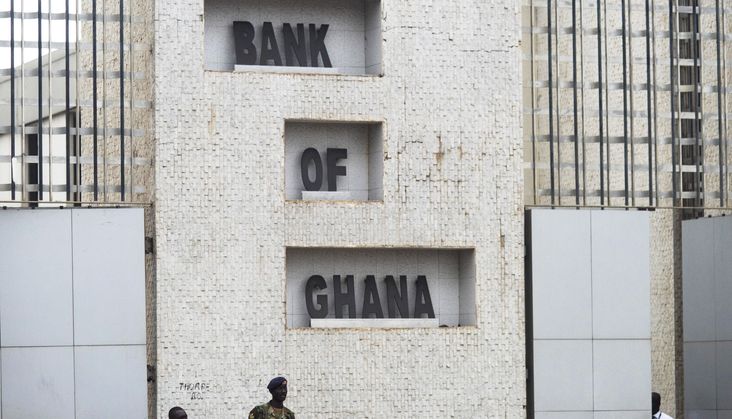Government and the Bank of Ghana have been urged to immediately design and implement a framework to assist local banks with funding.
Banking consultants Dr Richmond Atuahene and K. B. Frimpong hold the view that the Domestic Debt Exchange Programme has affected the banks.
They explained in a report that the banks hold GH₵50.6 billion of the total GH₵137.3 billion debt that was the target of the restructuring. These government securities that the banks hold form a large part of their assets.
They noted that by merely participating in the programme, significant changes have occurred in the balance sheets of the banks.
“Due to a combination of coupon or interest rate reduction, and maturity extension with below-market coupon rates of 19.3%, the capacity of the banking sector to absorb losses had been lower, as the banking sector capitalisation only took place three years ago.
"When banks are able to absorb losses without having to resort to a recapitalisation from the government, the fiscal consolidation and/or burden-sharing by other creditors required to restore debt sustainability would be smaller,” portions of the report stated.
At least nine banks have been identified by banking experts as being on the verge of insolvency as the domestic debt restructuring programme is said to have wiped off the value of the bank’s assets leaving them quite fragile.
Local banks participated in the programme geared at making Ghana’s debts sustainable but it appears its success may have lasting negative effects on the financial sector.
The Banking consultants recommended for the Bank of Ghana to identify gaps in crisis management and that bank resolution frameworks should be identified prior to the domestic debt exchange programme.
“Gaps in early intervention, resolution, deposit insurance, and central bank liquidity assistance for which Bank of Ghana in the process of establishing Financial Stability Support Fund as well as the coordination arrangements among these elements should be addressed before the Domestic Debt Restructuring.”
They added that “standard financial safety net components need to be supported by adequate contingency planning for each stage.”
Latest Stories
-
Social media now main source of news in US, research suggests
56 minutes -
Nuclear threat real, missiles already launched – Israeli envoy justifies attacks on Iran
1 hour -
Iran has wanted to erase us since 1979 – Israeli Ambassador to Ghana
2 hours -
GLC to focus solely on professional standards – Deputy AG confirms major legal education reform
2 hours -
GLC’s legal education role to be scrapped – Deputy AG confirms major overhaul
2 hours -
Foreign investigators on Wontumi’s trail – Deputy AG reveals
3 hours -
No one is persecuting Wontumi, every move is by the book – Deputy AG
3 hours -
Misusing AG’s office for persecution will cost us our jobs – Deputy Attorney
4 hours -
I didn’t join AG’s office to harass people – Deputy AG Srem Sai slams witch-hunt claims
4 hours -
Trump to leave G7 summit early due to Middle East situation
5 hours -
Mahama not using ORAL to persecute anyone – Deputy Attorney General Srem Sai
5 hours -
In-person attendance at the 7th Africa Youth in Tourism Innovation Summit closed
6 hours -
Heavy rains in dry season cause havoc in DR Congo’s capital
6 hours -
Ghana’s 400m queen Rafiatu Nuhu joins Louisiana State University
6 hours -
WhatsApp to start showing more adverts in messaging app
6 hours

